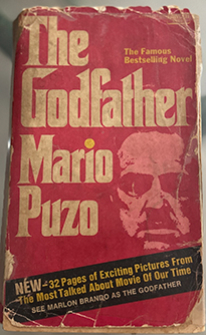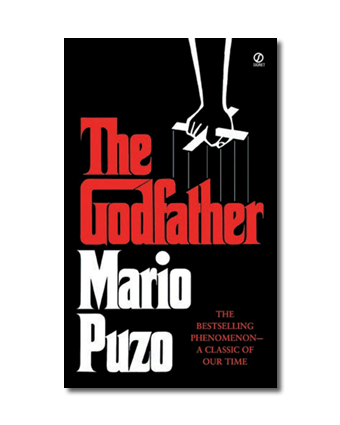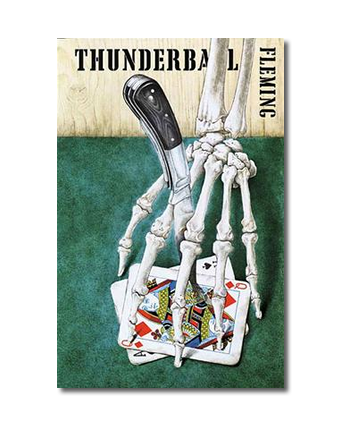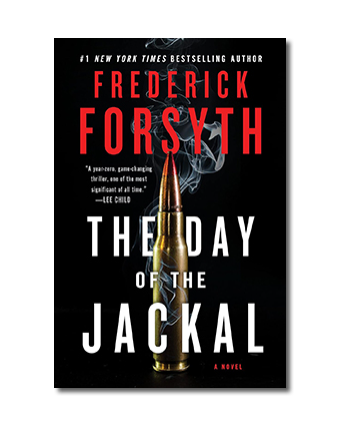True confession time: when I first read Mario Puzo’s master thriller, The Godfather, I was a teenager who’d never watched the movie because I found it boring.
Unlike the movie, however, the novel that captivated me from start to finish. Rich with compelling and believable characters, it was the first book to leave me wondering about the characters for a long time after I finished it. It has also proved influential in both my writing and personal life. (Just to be clear, though, that doesn’t mean I leave stallion heads in people’s beds. Not yet, anyway.)
Let’s dive into what makes this book a classic.
The novel and eponymous film follow the lives, deaths, passions, and deals of the Corleone family, particularly its first Don, Vito Corleone. It opens with that much maligned introductory technique, the prologue—here used to great effect. We meet three people in dire situations, each of whom conclude that they need Vito Corleone’s help.
- A baker who wants a resident’s visa for the immigrant who got his daughter pregnant. (See how generous the baker was? Another father might have first considered the “gunshot option.”)
- An undertaker whose daughter was savagely beaten up by a group of rich kids who thought laws didn’t apply to them. The undertaker begged Don Vito for revenge.
- A has-been singer and actor who won’t get a coveted movie role because of his infatuation with a young starlet whom the head of the movie studio was reserving for himself. (This is the character many people thought was based on Frank Sinatra.)
As Don Corleone resolves each of these situations, the diversity and deep power of the Don is established.
Not long after, the Don refuses a proposal to get into the drug business, which sets the five mafia families running the New York area to war, or as they call it, “go to the mattresses.” Among the high-ranking casualties are Sonny Corleone, firstborn child of Don Vito and Michael’s first wife, assassinated during his forced exile in Sicily.
When Don Corleone finally negotiates a peace agreement, he sets in motion a far-reaching plan that requires you to put on your old Sicilian hat to understand. Power is passed to the next generation and Michael later makes hard decisions that bring back the family’s honor and respect.
The 1972 film and its sequels boosted the novel into pop culture. Among its famous catchphrases: “Keep your friends close, but your enemies closer.” Despite its frequent use, it’s often misunderstood as an excuse to do somebody wrong: “I’m sorry this happened to you, but like The Godfather said, you know, ‘It’s not personal. It’s business.’”
The fact is that the Godfather doesn’t abide by that rule. Michael Corleone sets the record straight toward the end:
“Tom, don’t let anybody kid you. It’s all personal, every bit of business. Every piece of shit every man has to eat every day of his life is personal. They call it business. OK. But it’s personal as hell. You know where I learned that from? The Don. My old man. The Godfather. If a bolt of lightning hit a friend of his, the old man would take it personal. He took my going into the Marines personal. That’s what makes him great. The Great Don. He takes everything personal Like God. He knows every feather that falls from the tail of a sparrow or however the hell it goes? Right? And you know something? Accidents don’t happen to people who take accidents as a personal insult.”

Mario Puzo penned other novels. Sadly, they didn’t reach the popularity of The Godfather, but they are excellent crime fiction books, my favorite among them The Last Don.
Since the goal of Classic Thrills is to encourage you to read these novels, I’ll spare you any film commentary beyond these notes: Part III is greatly underrated and we can likely agree that The Godfather films are among the best adaptations of all time.
- Classic Thrills:
The Godfather - March 27, 2025 - Classic Thrills:
The Day of the Jackal - March 22, 2025 - Classic Thrills:
Thunderball - March 21, 2025








